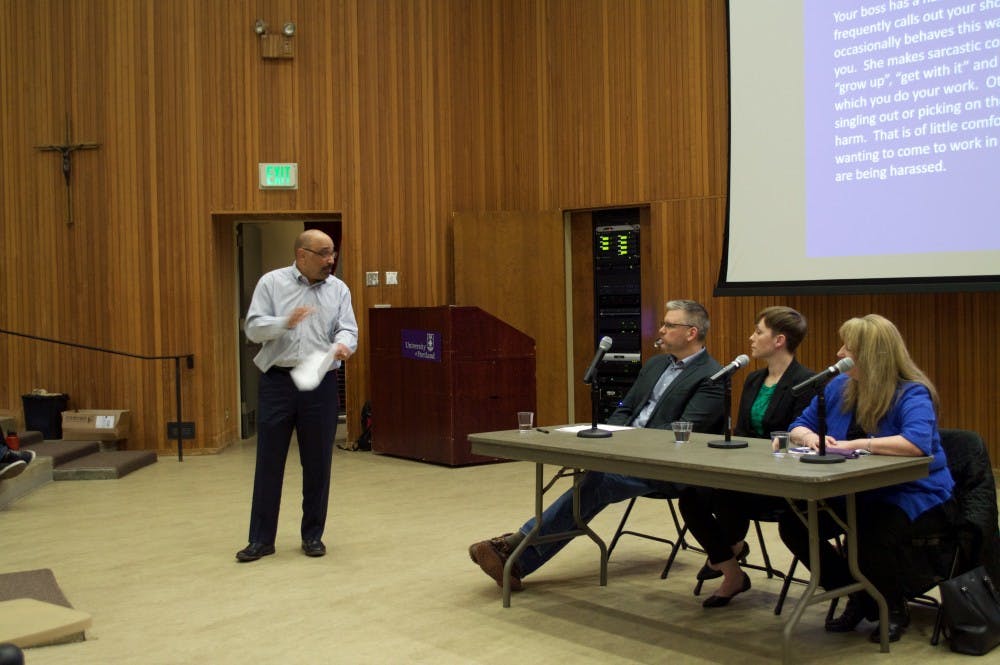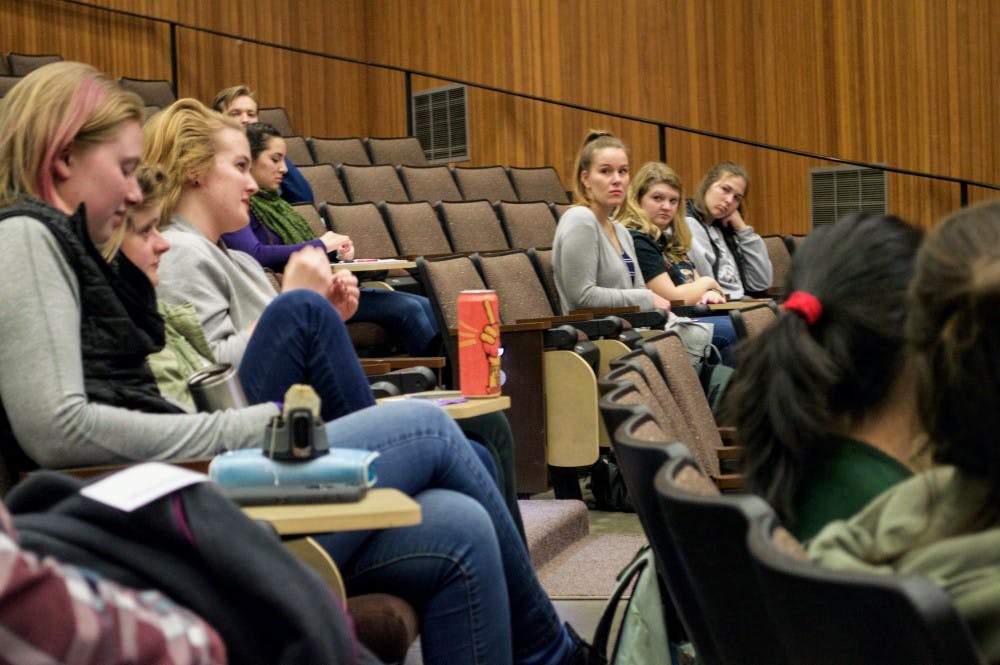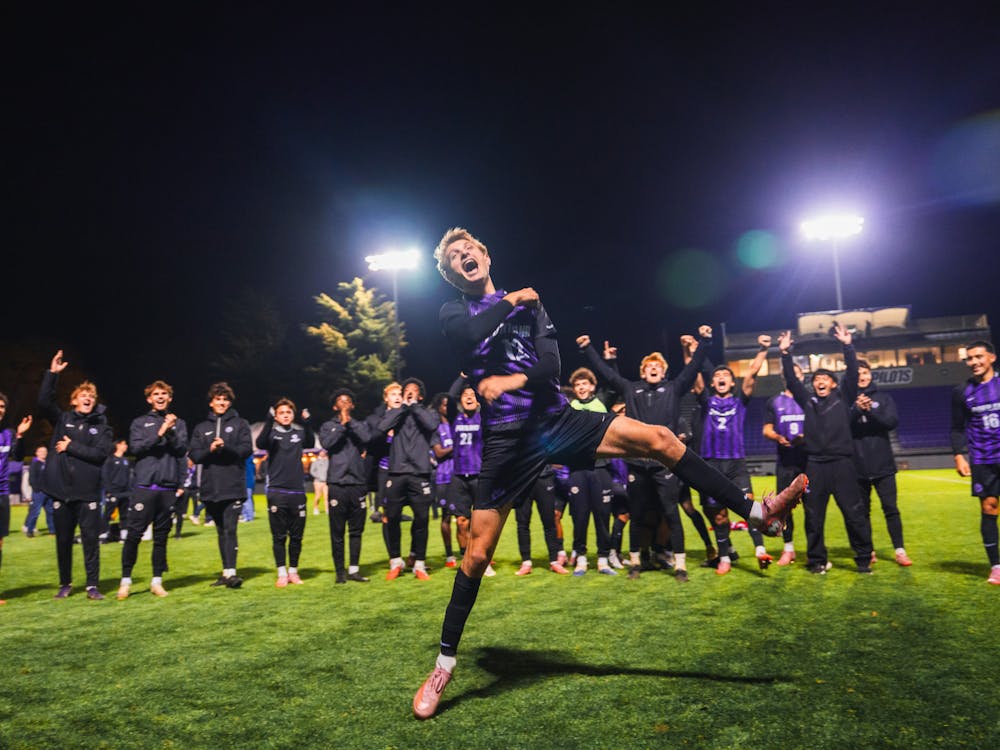Yesterday morning Steve Wynn, a Las Vegas casino and hotel mongol, stepped down from his billion dollar company amid sexual harassment allegations that stretch back for decades. His case is a part of a #metoo movement that began in the past year that has outed many alleged sexual harassment and sexual abusers from workplaces, including Harvey Weinstein, Matt Lauer, Louis C.K., Larry Nassar and others.
This changing workforce is one that many UP seniors will be entering into in just a few months. Last night, the Career Center partnered with the Shiley School of Engineering and the Organization for Diversity and Inclusion for Engineers to host “What Now in a #Metoo World?” The event covered how students can identify workplace harassment, know their legal rights and can be empowered to stand up against harassment as they enter the workplace.

The event was moderated by Bill Jenkins, UP’s Director of Employee Relations and Staff Diversity. It also included a panel of professionals who talked about their real workplace experiences. The panel included Ryan Jefferis, manager of fuel efficiency and powertrain concepts for Daimler Trucks North America; Nicole Lindsay, a wind and site engineer for Vestas American Wind Technology; and Wendy Kent, a recruiter and career consultant for Kent Employment Solutions.
Jenkins presented hypothetical workplace scenarios to the crowd of about 20 people for discussion about whether or not the situation was considered workplace harassment. The first hypothetical situation followed a woman being criticised by her boss for being young.
“Hazing. That’s what’s going on here,” Kent said. “Is it right? Absolutely not. Does it happen? All the time.”
Kent suggested speaking to the Human Resources department about situations like this one. HR can help prepare the person to have a conversation with the boss about their behavior. Jefferis pointed out that once HR gets involved, the situation can escalate, so consider having a conversation with the person first.
“Be aware that things can get escalated when HR is involved,” Jefferis said. “Have a conversation with the offender, but also don’t waste time with a conversation if the offense is serious.”
With the other hypothetical situations, a topic mentioned was “quid pro quo,” or when a colleague asks a person to do something to get ahead, sometimes inappropriately. If a colleague asks you to do something inappropriate in exchange for getting ahead professionally, that’s a serious problem and should be taken to HR.
“All employers have an obligation to take all complaints seriously,” Jenkins said.

Going into the workforce, Jenkins suggested that students trust their gut and know their resources, including knowing about the HR department of the company, the US Department of Labor office of Disability Employment, the Society for Human Resources Management and the US Equal Employment Opportunity Commission.
“(The event) definitely made me more comfortable—looking forward into the future, starting the job and entering the workplace,” senior Kaitlyn Krushinsky said. “I feel more aware of what could possibly happen.”
If a company isn’t taking complaints seriously, Jenkins recommended not feeling stuck, but taking action on your own terms.
“You have power,” he said. “You can leave on your own terms if the culture is wrong...if it doesn’t feel right, it’s probably not right.”








